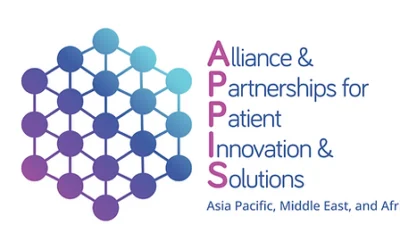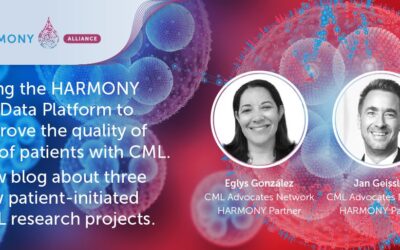With five approved tyrosine kinase inhibitors (TKIs) and none of them being curative, one may think whether there are still gaps to be filled with new CML drugs that follow similar mechanisms of action and not a totally different approach to eradicate the disease.
There is still a proportion of CML patients that does not respond to current TKIs properly or cannot tolerate them – and with non-effective treatment, they are at risk of life-threatening disease progression. Some CML patients sadly can’t access current 2nd generation TKI (Dasatinib, Nilotinib, Bosutinib) or 3rd generation (Ponatinib) drugs even if they would potentially address unmet medical need, e.g. in case of multi-resistent mutations. Additionally, about one third of CML patients achieve a good response on current TKIs but never get into MR4 remission, so they will not be able to try treatment-free remission (TFR) – so a more potent drug would probably increase “TFR probability” . There is also some concern on all current 2nd generation TKI about side effects, e.g. cardiovascular side effects or pleural effusions, so a highly effective drug with a more favourable long-term toxicity profile and a better quality of life is certainly something CML patients would like to see. Of course the ultimate goal is cure of CML, which none of the current drugs achieve.
One new but also non-curative option is now on the horizon with Asciminib, formerly called ABL001, which was presented by Prof Delphine Réa from the Hôpital Saint-Louis, Paris, France at the ASH congress this year. Asciminib is in a way similar to other TKI, as it inhibits the CML-specific BCR-ABL and stops the proliferation of the CML cells. However, called an “allosteric inhibitor”, it binds at a different site of the protein than any of the other TKIs, and hence is not affected by the known mutations of the ATP pocket that actually render the current TKIs ineffective.
 A first-in-human Phase-I study has been going on since 2014. Participants were already heavily pre-treated, as they had already failed to respond to at least 2 TKIs. In this Phase I study, different combinations of Asciminib with Imatinib, Nilotinib or Dasatinib were tested in different doses (40-280mg) and regiments (once daily, twice daily) and patients with the T315I mutations received Asciminib monotherapy.
A first-in-human Phase-I study has been going on since 2014. Participants were already heavily pre-treated, as they had already failed to respond to at least 2 TKIs. In this Phase I study, different combinations of Asciminib with Imatinib, Nilotinib or Dasatinib were tested in different doses (40-280mg) and regiments (once daily, twice daily) and patients with the T315I mutations received Asciminib monotherapy.
At this year’s ASH, only the data of the 32 patients with T315I patients was presented.
Of those, 36.7% achieved an MMR, 19.4% an MR4 and 16.1% an MR4.5 response on a 200mg dose of Asciminib, with a median time of 12 weeks to achieve major molecular response.  One 1 of 32 patients had to discontinue treatment due to adverse events. 62.5% of patients reported drug-related adverse events, and only one fourth of those had severe side effects (grade 3-4: nausea, thrombocytopenia, increased lipase). No cardiovascular adverse events (QT prolongation) were observed.
One 1 of 32 patients had to discontinue treatment due to adverse events. 62.5% of patients reported drug-related adverse events, and only one fourth of those had severe side effects (grade 3-4: nausea, thrombocytopenia, increased lipase). No cardiovascular adverse events (QT prolongation) were observed.
Overall, the authors conclude that Asciminib at 200mg shows promising efficacy and a favourable safety profile in CML patients with T315I mutation. Clinical benefit was observed in patients that had and hadn’t received Ponatinib prior to Asciminib.
Recruitment for the phase I study is still ongoing. In addition, the drug is now being investigated in two new studies:
- Randomized “phase III” study (Asciminib vs. Bosutinib) where patients with CML in chronic phase who have failed to at least two other TKIs, (recruiting)
- Randomized “phase II” study with suboptimal response after at least 2 years of first-line imatinib (planned)
Additional information:
- Slides of the presentation at ASH 2018
- Link to ASH 2018 abstract
- CABL001X2101 Phase I Multicenter, Open-label Study of Oral ABL001 in Patients With CML or Ph+ ALL) (CML Advocates Network clinical trial registry) – and clinicaltrials.gov NCT02081378
- CABL001A2301 Phase III study: ABL001 versus bosutinib in CML-CP patients pretreated with ≥2 TKI


